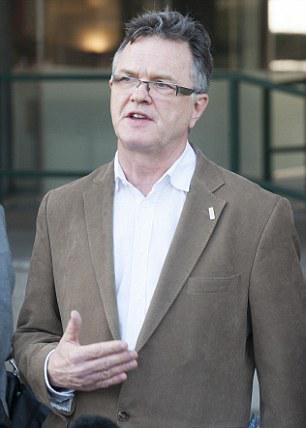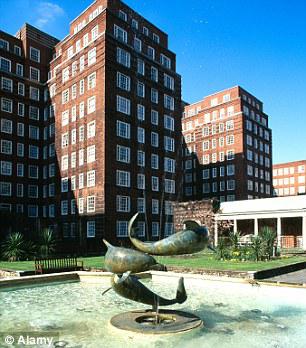|
VIP child abuse probe harmed by 'false memories': Leading campaigner suggests it is important not to 'make something huge' out of one or two misleading claims
By Arthur Martin
Daily Mail
October 04, 2015
http://tinyurl.com/qg8m77j
 |
| Peter Saunders, founder of the National Association for People Abused in Childhood, said it was important not to 'make something huge' out of the fact that one or two accounts were misleading |
 |
| The programme, to be shown tomorrow night, will examine the validity of Nick's claims that senior Establishment figures were responsible for murdering three boys in the 1970s and 1980s at Dolphin Square (pictured) |
A leading child abuse campaigner has suggested that the memories of some witnesses in the VIP paedophile inquiry may have become distorted over time.
Peter Saunders, founder of the National Association for People Abused in Childhood, said it was important not to 'make something huge' out of the fact that one or two accounts were misleading.
Such a move would be detrimental to child protection and to the current inquiry into abuse, he said.
Mr Saunders voiced his concern ahead of a BBC documentary that calls into question Scotland Yard's investigation into claims of a historical paedophile ring at the heart of the Establishment.
Panorama – the Corporation's flagship investigative programme – will scrutinise the lurid claims of 'Nick', the anonymous witness at the heart of Operation Midland. The programme, to be shown tomorrow night, will examine the validity of Nick's claims that senior Establishment figures were responsible for murdering three boys in the 1970s and 1980s.
Scotland Yard is under pressure to shelve its inquiry after it emerged detectives had 'grave doubts' about Nick's testimony.
Officers have not found a 'shred of credible evidence' to back up his murder claims.
Many detectives believe the inquiry – which has already cost more than £1million – is doomed and should be wound up. Mr Saunders, who sits on the Goddard Inquiry set up to examine independently the claims of historical child abuse, was interviewed by Panorama.
Referring to his interview, he told a Sunday newspaper: 'How they edit it, I won't know until it's out. I was assured it would be balanced.
'If it's not and they make something huge out of the fact that once in a blue moon you get someone whose memory is distorted, that is unhelpful.
'Many survivors are vulnerable people. If something appears to be an attack on other survivors and their integrity, that may dissuade them from coming forward.'
The Panorama report was originally scheduled to be shown in April but was pushed back by six months, reportedly because of tensions with BBC News. The programme asks a series of questions of both the BBC and police over the way the investigation has been handled.
According to the programme's website, these include: 'Why were the allegations described by police as 'credible and true' with no hard evidence or corroboration?' and 'What role have senior politicians and the media played in promoting this story around the world?'
BBC News executives are concerned the investigation will discredit their earlier reports and reopen concerns over how the Corporation handles stories about sexual abuse.
Its competence was previously called into question when Newsnight dropped an investigation into sexual abuse claims against former BBC DJ and presenter Jimmy Savile, amid concerns his accusers were unreliable. This sparked one of the biggest scandals in the BBC's history.
Mr Saunders added: 'They asked if political interference was in the best interests of inquiries and court cases.
'I said politicians getting involved on behalf of constituents is fine. If it's just for the benefit of them or their parties, leave it – it's too important.'
A Panorama spokesman said of the programme: 'It does not blame victims but investigates the conduct of the police, journalists, campaigners and politicians in handling allegations.'
|

